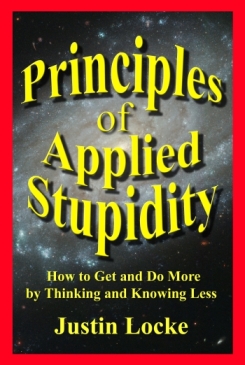I think it was a Niccolo Machiavelli who first said, “no man is entirely good or entirely evil.” And if I have not said this to you before, Machiavelli’s Discourses is one of the best management books ever written.
Anyway, I am starting to notice more and more that we live in a totally pure-good versus pure evil intellectual environment these days. Just in this past election, it was painfully obvious that whoever you were voting for, the attitude of almost everyone was, my candidate is a flawless angel, and your candidate is a demon from the depths of hell. As Bertrand Russell once said, “when both sides believe this, logically speaking, both cannot be true statements. So one of them is correct, or none of them is correct.” (By the way, his “Unpopular Essays” is one of my favorite books of all time… one of those true classics that no one ever reads anymore I guess.)
Rather than being a political discussion, however, this is really more of an artistic discussion. As a storyteller, I know all too well the drama that is implied in the conflict between good and evil. But what has happened with the non stop highly simplified good versus evil stories that we are offered now on a regular basis (in movies and in political campaigns), the bad guys are 100% bad, and the good guys are 100% good. This is fine for those who need to crank out a lot of cheap readily effective entertainment, but the net result is we have a largely emotionally illiterate population that cannot accept the idea of gray shades of rightness or wrongness.
What I am discovering more and more in my discussions with people about just about any topic you care to name is that there is always a major emotional investment in one side of the argument or another. This is a sure indication that people are not entirely certain of their position– the emotional energy comes from their inner doubt. everyhing needs to be couched in pure ideas of heaven or hell. unfortunately, most of life lies somewhere between the two.
One of the skills required of debate teams is the ability to advocate for one side of an issue and then completely flip around and be an advocate for the other side. As a society we are losing that objectivity. And it is a responsibility of people in the arts education world to address this. It is our job and no one else’s to calmly articulate what it means to be a human being.
For example, for a “bad guy” character to really be of any real artistic merit (i.e., be somewhat reflective of the truth), the bad guy has to be a mix of good and evil. Classic examples: Othello and MacBeth both started out as really good guys, but circumstances and human frailty led them to do some not so nice things. One of my favorite “bad guys” is Captain Hook – he sings, he dances, he just happens to be a pirate. Another one of my favorite “bad guys” is one of my own creation, the wolf in “Peter VS. the Wolf.” While his total guilt and evil are assumed at the start, as the show goes on it becomes more and more difficult to tell whether he is evil, or a victim of a vicious conspiracy. And one of the reasons he is such an appealing bad guys because he has such a complicated combination of good and evil within himself.
But people who are producing horror movies or vying for political power have no time for such niceties. They know that most people are eager to believe in the presence of a totally evil demon that exists wholly outside of themselves. And until we can, both individually and as a society, start accepting the fact that we are not perfect, we will forever be suckers for people who have figured out how to use that fantasy desire to manipulate us. Part of our own inherent “evil” (in that it is a lie born of fear) is our childlike need to believe that we are morally superior 24 hours a day, and the people who disagree with us are the devil incarnate.
If you disagree with me, well, you are obviously morally bankrupt.
© Justin Locke

